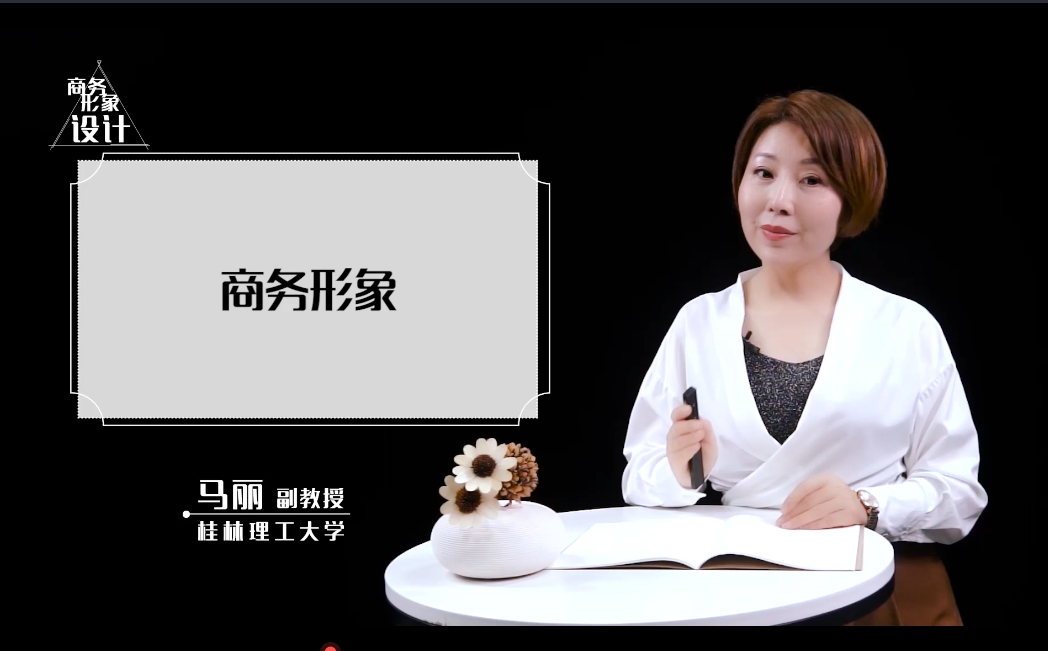
当前课程知识点:国际新闻比较与分析 > 第六章 International Journalism and China(国际报道与中国) > 6.3 Chinese Correspondents in Foreign Bureaus (中国媒体驻外记者) > 6.3 Chinese Correspondents in Foreign Bureaus
欢迎大家回到课堂
在上一讲中
我们谈到了中国发展国际报道事业的历史背景及其近况
我们谈到了中国发展国际报道事业的历史背景及其近况
在这节课中
我们将着眼于
为中国媒体开展国际报道工作的人
为中国媒体开展国际报道工作的人
他们是中国驻外记者
他们是谁
他们的驻地在哪
他们如何工作
为了回答这些问题
我首先向大家介绍一下三巨头的全球布局
中国这三家主要媒体
新华社 中央电视台和中国国际广播电台
近十几年来在走出去战略的鼓励和帮助下
他们在国外的分社和记者数量都在增长
让我们先来看看新华社
自1948年在捷克共和国的布拉格成立第一个分社以来
自1948年在捷克共和国的布拉格成立第一个分社以来
70多年过去了
新华社已成为一家全球性的新闻通讯社
现在该社在全球拥有91个海外办事处
员工数达520人
其中有300多名是记者
这些分社和记者可分为五个总分社
亚太总分社 总部设于香港
中东总分社 总部设在埃及开罗
拉丁美洲总分社 总部设在墨西哥城
非洲总分社 总部设在肯尼亚首都内罗毕
欧洲总分社 总部设在法国巴黎
第二大的是CCTV 中央电视台
根据官方数据
中央电视台在海外设有70个分社
分布在6大洲 共有200多名驻外记者
例如 在亚洲 有曼谷
东京 德里 迪拜
以及中国的三个地区
香港 澳门和台北
在欧洲 有布鲁塞尔 巴黎
柏林 莫斯科和伦敦
在北美 有洛杉矶 纽约
华盛顿特区 多伦多
在非洲 有开罗 约翰内斯堡 内罗毕
在南美洲 有圣保罗 里约热内卢
在大洋洲 有澳大利亚的悉尼
这个列表还不是全部
比这里列出的还要多40多个地方
特别值得一提的是 中央电视台有两个海外分台
一个设在华盛顿 另一个设在内罗毕
这两个海外分台主要为CGTN服务
我们在上节课中提到
第三个是CRI 中国国际广播电台
它在六大洲的27个国家有40多个驻外记者站
它在六大洲的27个国家有40多个驻外记者站
加在一起
这三家媒体是派出外国记者最多的中国媒体
这三家媒体是派出外国记者最多的中国媒体
他们在世界各地总共有200来个驻外记者站
这些记者站雇佣了约800名记者
他们24小时向国内外受众报道着国际新闻
他们24小时向国内外受众报道着国际新闻
这是新华社中东分社的照片
2018年1月
该分社工作人员在办公大楼前面合影
该分社工作人员在办公大楼前面合影
祝国内同胞们春节快乐
但是 这只是在图片中
他们到底是谁
在2018年发表的一项最新研究中
诺丁汉大学的两位教授
试图描述中国驻外记者的总体情况
从60名记者的样本中
他们得出了以下结论
在中国驻外记者中
男性多于女性
男女比例是十六比一
他们在驻外机构的居住期限各不相同
但大多数在5年以下 10年以上的很少
就新闻从业经验而言
他们大多有6-10年的从业经验
很少有人少于5年
21年以上的人就更少了
根据这些和其它信息
也许我们可以这样描绘一个典型的中国驻外记者的形象
也许我们可以这样描绘一个典型的中国驻外记者的形象
男性 30多岁
出生及成长在
中国改革开放时期
他从事新闻工作大约10年了
他已在国外居住了大约5年
他英语说得很好
他也可能有第二外语的学位
如阿拉伯语或国际关系的学位
他们的年龄 他们的教育背景
和他们接触的不同文化
意味着他们往往具有世界性的视野
然后 你可能还想深入一点追问
他们的个人动机是什么
为什么他们想成为一名驻外记者
好吧 关于这个
让我向你展示研究人员的发现
在2013年对中国战地记者的一项研究中
研究人员问记者是什么促使他们从事这一职业
研究人员问记者是什么促使他们从事这一职业
答案包括这些
好奇心
冒险
热爱异域历史与文化
丰富生活经历
激烈的市场竞争
一种责任感
国家利益
此外 许多人认为在海外工作
是职业晋升的重要一步
例如
新华社巴以分社一名27岁的男性记者告诉研究人员
新华社巴以分社一名27岁的男性记者告诉研究人员
他在担任这一职务之前已经在该机构工作了五年
他在担任这一职务之前已经在该机构工作了五年
他说他自愿去那
因为他的理想是成为一名国际新闻记者
巴勒斯坦-以色列是最著名的冲突地区
他想体验一下
那么他们是如何工作的呢
在国外工作难吗
他们是如何获取新闻并每天填充新闻版面的
好 新华社一位女记者的话
让我们对这个问题有了一些了解
她在叙利亚大马士革驻站
她说
当地雇员的消息非常灵通
他们知道发生的一切
除此之外
我还从私人朋友那里了解每天的新闻
我密切关注当地媒体
叙利亚新闻通讯社和一些大的新闻网站
偶尔我会看报纸
但我不会把它们作为信息来源
西方媒体 包括BBC
路透社 美联社 阿拉伯半岛电视台
都是必读必看的
所以 你可以看到外国分社的中国记者
从哪里获得新闻
这包括常规化的信源
官员 国家元首
和其他政府官员
专家 外交官 记者同行
本地媒体 国际媒体等
此外 他们也有自己的私人资源
比如他们在当地的助理 翻译 跑腿的人
私人朋友或公众人物
基于你在前面章节中所学到的
特别是关于记者和信源的关系
我相信你已经有了这样的能力
能够进行自己独立的和批判性的分析
对于这种制作模式将如何影响
呈现在读者 听众或观众面前的最终新闻产物
呈现在读者 听众或观众面前的最终新闻产物
我把这个留给你们课后思考
这节课就到这里
大家再见 期待下次再会
-导论 Test
-1.1 Definition of News (新闻的定义)
--1.1 Test
-1.2 General News Values: Timeliness, Impact, Prominence, Proximity (新闻的及时性、影响力、显著性与接近性)
--1.2 General News Values: Timeliness, Impact, Prominence, Proximity
--1.2 General News Values: Timeliness, Impact, Prominence, Proximity
--1.2 Test
-1.3 General News Values: Conflict, Deviance, Currency, Necessity (新闻的冲突性、异常性、话题性与实用性性)
--1.3 General News Values: Conflict, Deviance, Currency, Necessity
--1.3 General News Values: Conflict, Deviance, Currency, Necessity
--1.3 Test
-1.4 Structure and Value of International News (国际新闻的结构与价值)
--1.4 Structure and Value of International News
--1.4 Structure and Value of International News
--1.4 Test
-2.1 Hierarchy of Influences on News (新闻的影响层级)
--2.1 Hierarchy of Influences on News
--2.1 Hierarchy of Influences on News
--2.1 Test
-2.2 Gatekeeping and Personal Influences (新闻把关人与记者个人影响)
--2.2 Gatekeeping and Personal Influences
--2.2 Gatekeeping and Personal Influences
--2.2 Test
-2.3 Media Routines and Organizational Influences (新闻常规与组织影响)
--2.3 Media Routines and Organizational Influences
--2.3 Media Routines and Organizational Influences
--2.3 Test
-2.4 Extra-Media Forces and Ideology (意识形态与组织外影响)
--2.4 Extra-Media Forces and Ideology
--2.4 Extra-Media Forces and Ideology
--2.4 Test
-3.1 Authoritarian and Libertarian Theories of the Press (媒体的威权主义与自由主义理论)
--3.1 Authoritarian and Libertarian Theories of the Press
--3.1 Authoritarian and Libertarian Theories of the Press
--3.1 Test
-3.2 Social Responsibility and Communist Theories of the Press(社会责任与共产主义理论)
--3.2 Social Responsibility and Communist Theories of the Press
--3.2 Social Responsibility and Communist Theories of the Press
--3.2 Test
-3.3 Comparing Media Systems in the West: Three Models (比较媒介体系的三种模式)
--3.3 Comparing Media Systems in the West: Three Models
--3.3 Comparing Media Systems in the West: Three Models
--3.3 Test
-3.4 Comparing Media Systems in the West: Four Dimensions(比较媒介体系的四个维度)
--3.4 Comparing Media Systems in the West: Four Dimensions
--3.4 Comparing Media Systems in the West: Four Dimensions
--3.4 Test
-4.1 State-Owned Media (国有媒体所有制)
--4.1 Test
-4.2. Public-Owned Media (公共媒体所有制)
--4.2 Test
-4.3. Private-Owned Media (私人媒体所有制)
--4.3 Test
-4.4. Concentration of Media Ownership (媒体所有权集中化)
--4.4 Concentration of Media Ownership
--4.4 Concentration of Media Ownership
--4.4 Test
-5.1 Evolution of Foreign Correspondence(驻外报道的历史与起源)
--5.1 Evolution of Foreign Correspondence
--5.1 Evolution of Foreign Correspondence
--5.1 Test
-5.2 The Role of Global News Agencies (全球通讯社与驻外报道)
--5.2 The Role of Global News Agencies
--5.2 The Role of Global News Agencies
--5.2 Test
-5.3 Foreign Correspondence Beyond News Agencies (通讯社之外的驻外报道)
--5.3 Foreign Correspondence Beyond News Agencies
--5.3 Foreign Correspondence Beyond News Agencies
--5.3 Test
-5.4 Foreign Correspondence in the New Millennium(新世纪的驻外报道)
--5.4 Foreign Correspondence in the New Millennium
--5.4 Foreign Correspondence in the New Millennium
--5.4 Test
-6.1 Foreign Correspondents in China(外媒驻华报道)
--6.1 Foreign Correspondents in China
--6.1 Foreign Correspondents in China
--6.1 Test
-6.2 International Journalism in Chinese Media (中国媒体国际报道)
--6.2 International Journalism in Chinese Media
--6.2 International Journalism in Chinese Media
--6.2 Test
-6.3 Chinese Correspondents in Foreign Bureaus (中国媒体驻外记者)
--6.3 Chinese Correspondents in Foreign Bureaus
--6.3 Chinese Correspondents in Foreign Bureaus
--6.3 Test
-7.1 Definition of Geography of News (新闻地理的定义)
--7.1 Definition of Geography of News
--7.1 Definition of Geography of News
--7.1 Test
-7.2 Geography of Foreign News on Global TV(全球电视国际报道的新闻地理)
--7.2 Geography of Foreign News on Global TV
--7.2 Geography of Foreign News on Global TV
--7.2 Test
-7.3 Who Is Interested in China (外国公众对中国新闻的兴趣)
--7.3 Who Is Interested in China
--7.3 Who Is Interested in China
--7.3 Test
-8.1 Determinants of Global News Flow(全球新闻流的决定因素)
--8.1 Determinants of Global News Flow
--8.1 Determinants of Global News Flow
--8.1 Test
-8.2 World System Theory and Global News Flow(世界系统理论与国际新闻流)
--8.2 World System Theory and Global News Flow
--8.2 World System Theory and Global News Flow
--8.2 Test
-8.3 Towards a New World Information and Communication Order(通往新信息传播秩序之路)
--8.3 Towards a New World Information and Communication Order
--8.3 Towards a New World Information and Communication Order
--8.3 Test





